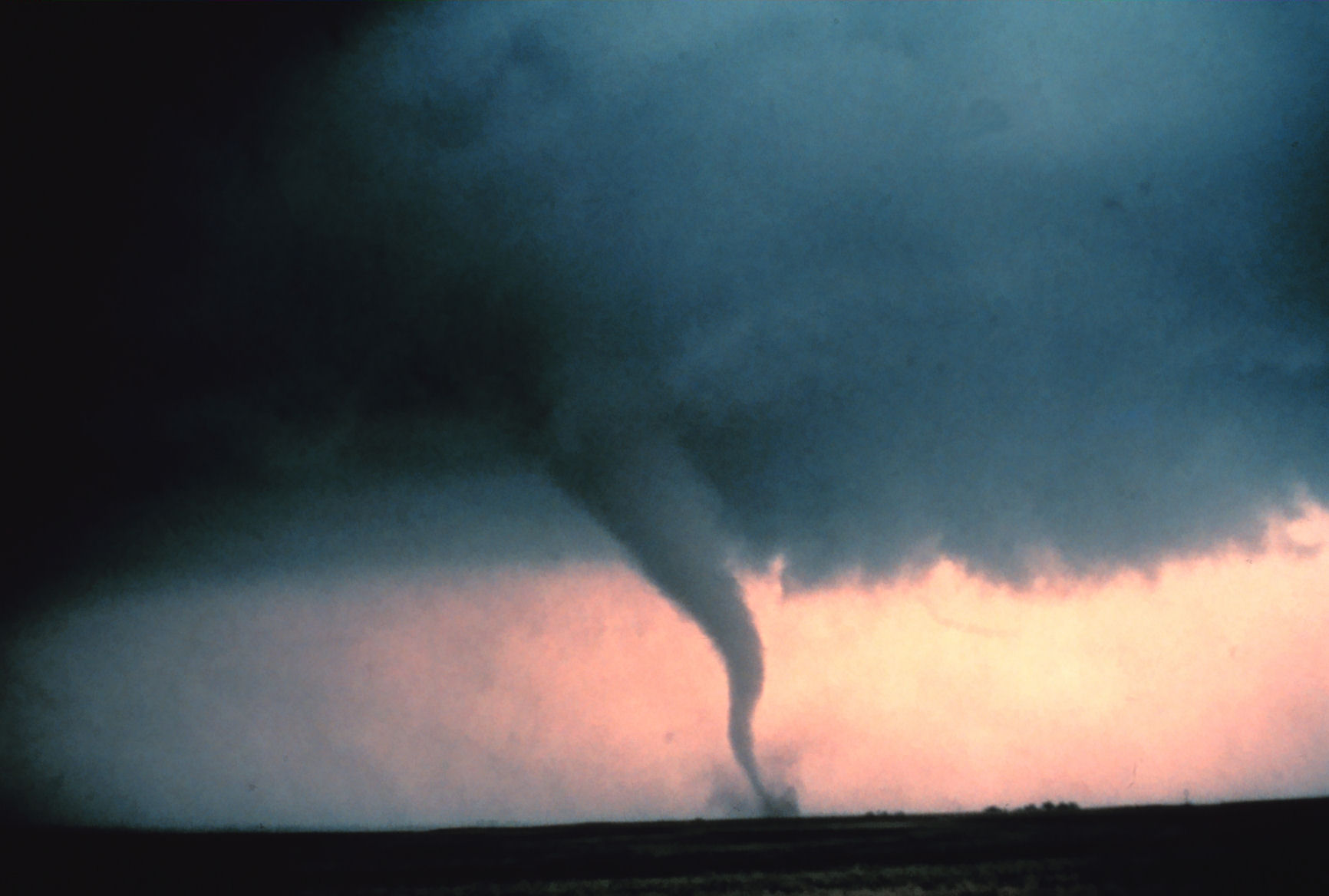Coalescing around Climate
17 August 2016

(Photo Credit: NOAA Photo Library, CC BY 2.0)
I hate to harp on the same themes, but I do need to to get this right. For some time, I have been blogging about imbalance in society, about climate change, and about the plural sector (civil society) and how to get its collective act together. Last week, after participating in several related activities at the World Social Forum in Montreal, including a panel discussion that gave rise to two insights, these themes began to coalesce into a coherent framework for action. I summarize it here as a work-in-progress:
THE ISSUE: The world is dangerously out of balance. The private sector is dominant; much of the public sector is coopted by it; and the plural sector is obscure, marginalized by our obsession with left versus right, namely public sector governments versus private sector markets, with no room for the communities of the plural sector in between.1 Many of the difficulties we face now—for example, income disparities, lop-sided globalization, and global warming (intensified by our relentless production of more and more)—derive from, or are exacerbated by, this imbalance.
THE IMPERATIVE: The plural sector will have to take the lead in restoring the balance. The private sector will not cede its established dominance, nor will the social responsibility of businesses compensate for all the the social irresponsibility we now experience. And how many governments are prepared to challenge the private interests that coopt them domestically alongside the economic forces that overwhelm them globally? This leaves but one sector to take the lead in driving the radical renewal we require—the plural sector.
THE PROBLEM: The plural sector is too plural, and disorganized, to get its collective act together. This is the sector of NGOs, cooperatives, community groups, social movements, social initiatives, and other associations that are owned neither by the state or by private investors. (They are owned by their members, or else by no-one. Who, for example, owns Greenpeace?) The World Social Forum itself made clear last week how eclectic and vibrant is the plural sector, also how much difficulty it has getting itself organized. (Compare this with the World Economic Forum in Davos, and business lobbying in general. Private sector businesses get their collective act together rather effectively when, for example, they wish to lobby for lower taxes.) Can our future be ceded to whatever force in society happens to be the most organized?
FIRST INSIGHT: The plural sector will have to focus on some central challenge. At a panel we ran at the Forum about the sector getting its act together, someone in the audience made the point that, to make headway at this point, the plural sector will have to focus its energies on one central theme. Rebalancing society is perhaps too broad and abstract a theme, at least for getting started. The obvious theme on which to focus is climate change. Pledges by governments, as at the COP 21 conference in Paris last December, will not deal with it. ( See the TWOG of 12 May, “Saving the planet from governments and markets.”) And business initiatives, however beneficial—for example, related to cap and trade, electric vehicles, and alternate forms of energy—are not going to suffice. (See the TWOG of 22 January 2015, “Can the World Economic Forum deal with the world’s social problems.”) We need 0°, not +2°, and cannot count on government or business alone to get us there. Once we recognize the urgency of stopping global warming, not just slowing it down, we will be able to face the underlying problem of balancing our societies.
SECOND INSIGHT: The plural sector will have to channel the power of its plurality—to make constructive use of its own dis-organization. Alex Megelas of Concordia University made an important point on the same panel: that the strength of the plural sector lies in its plurality, namely its messiness. How then are we to reconcile these concurrent needs for organization and dis-organization at the same time? By organizing around a central theme and then tackling it with a whole host of different efforts. We need to swamp the problem of climate change with all kinds of clever initiatives. So the issue reduces to:
THE QUESTION: How to channel the power of the plural sector, which includes that of ourselves, to move the public and private sectors toward profound action on climate change, and ultimately, on the imbalance we face? We are the plural sector, on the ground: you and I. We create, staff, use, and support its associations, in our communities and beyond. Moreover, we vote, we buy, and we march. Individually, we can refuse, we can reduce, and we can replace. And together, as consumers, citizens, and actors, we can drive our governments and businesses to face their responsibilities, as we must face our own. The plural sector will cease to remain obscure when the good folks of the world come to realize the potential of their power, and become the force needed to address the future of this planet and our progeny. After all, what major social change ever began without a groundswell of concerned human energy?
I want to end this TWOG here. After all, as James Thurber claimed: “It is better to know some of the questions than all of the answers.” Here at least is one of the questions. But can I just stop now, without explaining what has to happen next? This is the question I get every time I push these ideas one step further: “Yea, but what do we do now?” The answer lies in we, beyond me.
Social change in the thirteen American colonies began with a sudden tea party in the Boston harbor. The civil rights movement in the U.S. began with an act of civil disobedience, by a woman who boarded a bus in Montgomery, Alabama. People on the ground take the steps that cause chain reactions to change the world. As a work-in-progress, this effort has to engage many of us, with a plurality of ideas that can evoke all sorts of determined actions, to overwhelm what now overwhelms us. So let me ask you to suggest what can come next, with the spark of compelling ideas that can take us to a decent climate: on Twitter, LinkedIn, and Facebook.
We don’t have it right yet, but we are getting there!
© Henry Mintzberg 2016. For more on the central theme, please see Rebalancing Society…radical renewal beyond left right and center, available in the usual places, but also for free downloading as a PDF.
Follow this TWOG on Twitter @mintzberg141, or receive the blogs directly in your inbox by subscribing here. To help disseminate these blogs, we now also have a Facebook page and a LinkedIn page.
1 For an all-too-pointed example of this, see last week’s TWOG on how Montreal’s English-language daily focussed its coverage of the Forum around two Israeli-Palestinian incidents, as if the thousand other activities never took place.